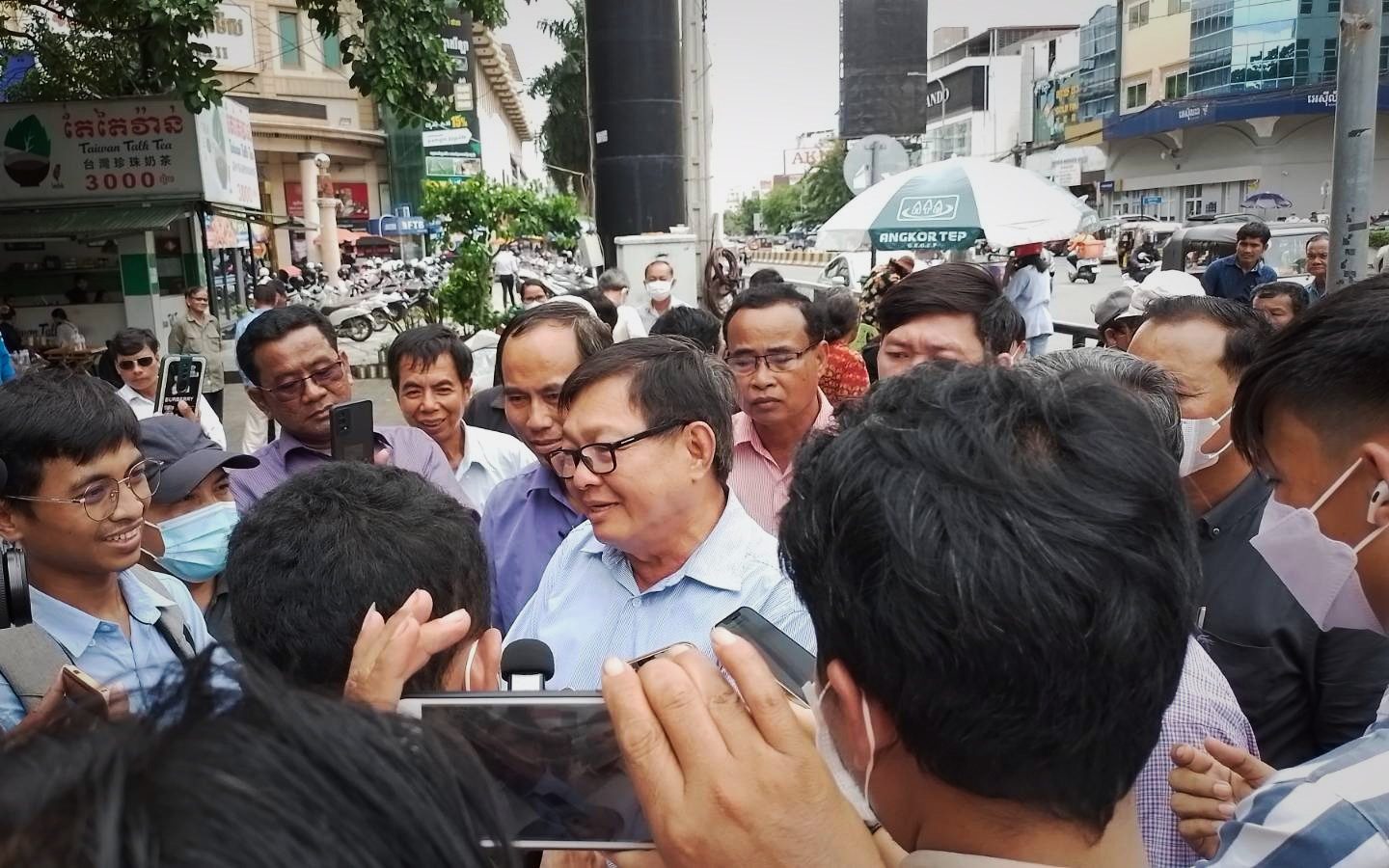The National Election Committee maintained on Thursday that comments made by an opposition leader about the results of the June commune election had affected its reputation, as it pressed its case at a defamation hearing at the Phnom Penh court.
The election body and the Cambodian People’s Party are separately suing Candlelight Party leader Son Chhay for comments he made on a radio show about the conduct and outcome of the June commune election. Opposition parties and observers have noted irregularities in registration and vote counting, as well as the intimidation of candidates.
The CPP complaint, which asks for around $1 million in compensation, points to comments made by Chhay on June 7 on a Cambodia Daily Khmer-language radio show, where he says the election results did not reflect the will of the people because there had been “vote buying” and “stealing.”
Both the ruling party and election body sued Chhay for defamation under Article 305 of the Cambodian Criminal Code, which carries a maximum penalty of around $2,500. Only the CPP has asked for compensatory damages.
In court on Thursday, Chhay did not shy away from his comments in the interview and said they were made before the results were announced and based on information he had received from party observers and statements released by other election monitoring groups.
He had not heard from the NEC at the time over the allegations of election irregularities and was advocating on behalf of his party. He claimed that the NEC in the past had said that elections were not 100% perfect and that his party was still engaging with the body to pass reforms.
“In all the work I did, I had no intention at all to affect the honor or damage the image of the NEC,” he said “The [aim] is to make NEC have confidence from the Cambodian people. This is the duty of the politician and as the leader of a party.”
NEC spokesperson Sam Sorida represented the election body in court and said Chhay’s allegations were incorrect and did not reflect the reality of the election.
Prosecutor Plang Sophal insisted that Chhay produce more evidence to back up his allegations, repeatedly questioning the opposition leader about claims made in the interview.
The court, at this point, had allowed Chhay, the prosecution and plaintiff to debate the case and was proceeding to allow the NEC to make its closing arguments in the case. However, Choung Chou Ngy, Chhay’s lawyer, said the defense had not been given a chance to discuss the case and question the other parties.
Judge Ham Mengse allowed Chou Ngy to question the NEC’s Sorida about irregularities with form 1102 — which documents vote tallies at each counting station. But as soon as he started the questioning, Mengse asked Chou Ngy to stop and save these submissions for the closing arguments.
All parties then made their closing arguments, with NEC lawyer Yich Samethy saying Chhay’s claims seriously affected the NEC’s reputation, with prosecutor Sophal also asking for Chhay to be punished.
Chou Ngy in his final submissions argued that what Chhay had said was based on his understanding at the time and from reports he received from the Candlelight Party. He asked for Chhay to be absolved.
The trial will resume on October 7 when the court will discuss the CPP complaint.












